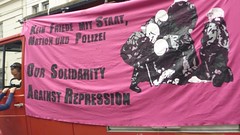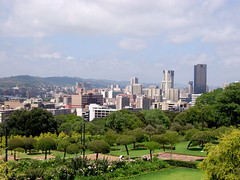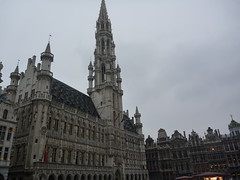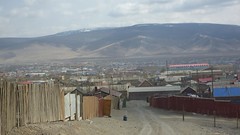 Scrolling and clicking around the social networks on the 4th of July, you see alot of well wishes and people in the US getting together to celebrate. As a kid there were some years, when I wasn’t in Portugal, that I would of course enjoy the festivities on this day. However now as an adult, I know more about what this day means, and instead of celebrating, I return to the words of Frederick Douglass, “This Fourth of July is yours, not mine.”
Scrolling and clicking around the social networks on the 4th of July, you see alot of well wishes and people in the US getting together to celebrate. As a kid there were some years, when I wasn’t in Portugal, that I would of course enjoy the festivities on this day. However now as an adult, I know more about what this day means, and instead of celebrating, I return to the words of Frederick Douglass, “This Fourth of July is yours, not mine.”
Author Archives: bicyclemark
Some Brief Vienna
 A very brief and simple glimpse of 2 moments from a Saturday in Vienna. A protest in the university area and a folkloric band parade in front of city hall.
A very brief and simple glimpse of 2 moments from a Saturday in Vienna. A protest in the university area and a folkloric band parade in front of city hall.
They Renamed Pretoria
 The plane ride from Amsterdam to Vienna is more of hop than a flight. You’re up, you get a drink and a snack, you look out the window – you’re there. Yet even in that short time, I found myself engaged in a thought provoking conversation last week on the plane, with a young South African sitting to my left.
The plane ride from Amsterdam to Vienna is more of hop than a flight. You’re up, you get a drink and a snack, you look out the window – you’re there. Yet even in that short time, I found myself engaged in a thought provoking conversation last week on the plane, with a young South African sitting to my left.
What particularly sparks my attention are the details that, even as a socially conscious and worldly journalist, I have missed over the years. One that will not come as a surprise to most of you as it has been true for several years now, they renamed Pretoria – a fact I was not aware of. Though the complete name change is still being discussed in some levels of government in South Africa, my new friend informed me that in her home town now known as Tshwane, most signs and official markers have all been changed already.
I didn’t have to ask her why they changed it. Thinking about it for a moment I realized the name Pretoria, even for me an outsider, makes me think of the apartheid era. Specifically I always loved the film Biko, about Stephen Biko’s life, and the depictions of police and Pretoria from that film are indeed prevalent in my head. Beyond that, when I think of former Portuguese colonies like Luanda in Angola (formerly Nova Lisboa) and Maputo in Mozambique (formerly Lourenço Marques), I understand the concept in the context of breaking with traditions and gruesome reminders from colonial times. So although I hadn’t heard Pretoria was renamed, I immediately did the math in my head and understood what was happening.
It was my seat companion that brought up the issue that inspired this post, when she expressed great frustration at the renaming. Not because she had some deep seated love for the name Pretoria or for the Apartheid era, but because for this young South African of Afrikaner decent (if I may add with no disrespect intended), the time, energy, and resources dedicated to the process of renaming cities like Pretoria could have better improved the nation by helping to address poverty and the needs of the most vulnerable people of the nation. Instead they spend huge sums of money and hold endless discussions, all to change a name of a city.
Looking back and forth between this very articulate person and the clouds outside, I was reminded of that great scene in Clint Eastwood’s Film Invictus (about Mandela’s intial time as the new president of South Africa and the end of apartheid). In this specific scene there is a meeting of the new sports commission about changing the colors and name of the South African rugby team. Rugby having been the sport synonymous with those in power during apartheid. Without going into the extended version of what happened, nor to ruin a powerful scene in the film, just as the new commission is going to approve of a motion to change the name and change the colors of a team that was so important to many white South Africans, Mandela begged them not to. He felt rugby could be changed from a symbol of division to a symbol of unity.
Mandela has been out of the presidency for a long time and I haven’t read his comments about the Pretoria name change. Maybe it isn’t fair to compare them and indeed the name should go away like Salisbury in Zimbabwe and Leopoldville in Congo. Or maybe the creative and unifying spirit that Mandela brought is gone now, and his fear of people playing politics with symbols and names has come true.
When Theres No More Belgium
 Over the past 10 years, besides regularly visiting friends and family, I have taken countless train rides through and around Belgium. Looking out the window from the quiet and comfortable SNCB trains at the beautiful green fields that stretch as far as the eye can see. Not quite as perfect and manicured as the Netherlands, not quite as spacious as France, no one could argue that in any part of Belgium there is great beauty to be seen and experienced. This beauty extends beyond a nice looking bit of scenery, as this small nation is in many ways the heart of Europe, multicultural and multilingual, having overcome a sad history of wars and conflicts to build a country that at the very least, has achieved a quality of life for the average person that other people throughout the world can only dream of.
Over the past 10 years, besides regularly visiting friends and family, I have taken countless train rides through and around Belgium. Looking out the window from the quiet and comfortable SNCB trains at the beautiful green fields that stretch as far as the eye can see. Not quite as perfect and manicured as the Netherlands, not quite as spacious as France, no one could argue that in any part of Belgium there is great beauty to be seen and experienced. This beauty extends beyond a nice looking bit of scenery, as this small nation is in many ways the heart of Europe, multicultural and multilingual, having overcome a sad history of wars and conflicts to build a country that at the very least, has achieved a quality of life for the average person that other people throughout the world can only dream of.
Problems? Sure they’ve got a fine list of economic, social, and political problems. Some that seem to get worse (like the national debt), some that are just made to sound worse by leaders who benefit from fear, anger, or some other form of rabid regional patriotism.
Even with these problems, the nation is still has a long list of successes and virtues, that would be the envy of pretty much any other continent on the planet. Take any sector, from health to agriculture, to science and beyond, you’ll find plenty of achievements in Belgium.
Despite all this, we still sit ever closer to what seems like the break up of the nation. With every passing election, it feels like a loud majority have forgotten what a great place they live in, and all that they have in common with their neighbors. Instead they believe the solution to all their problems will come with the end of Belgium. Putting an end to one of the most unique and beautiful nations the world has ever known.
Vlogging the Ger District
 While recording the podcast of the Ger district tour, these images were also captured. This video doesn’t include the detail and background info that you can hear in the podcast, but I think the images speak for themselves.
While recording the podcast of the Ger district tour, these images were also captured. This video doesn’t include the detail and background info that you can hear in the podcast, but I think the images speak for themselves.
Another Nail in the Dutch Coffin
 There’s what people think the Netherlands is like and then there’s what the Netherlands is actually like. Reality does not always fit the internationally renowned fantasy. From drugs, to prostitution and now to squatting; much of what the world claims to know about the land of orange, stopped being true some time ago.
There’s what people think the Netherlands is like and then there’s what the Netherlands is actually like. Reality does not always fit the internationally renowned fantasy. From drugs, to prostitution and now to squatting; much of what the world claims to know about the land of orange, stopped being true some time ago.
The latest victim on the list of celebrated traditions that exist in few other places the way they exist in Amsterdam is the tradition of squatting. At the height of squatting in the 1980’s, in Amsterdam alone there were at least 20,000 residents living in occupied buildings. Long after the city and private owners had left buildings abandoned and in disrepair, this community of hands-on, do-it yourself individuals took the initiative to not only take over these buildings, but to repair them and create a new community around them. An empty hospital, a forgotten warehouse, an obsolete police station, a crumbling school house, no matter where you look in the beautiful city of Amsterdam, there is surely a squat that has been repaired and re-purposed by groups of artists, activists, and other creative types. And they don’t stop at housing, in the city of Amsterdam alone squats are home to organic vegetarian restaurants, affordable atelier space for artists, live performance spaces, film houses, saunas and more.
Yet despite the unique and incalculable contribution squatting brings to a city such as Amsterdam, in the halls of city and national government there has apparently not been enough voice to defend that tradition. As June 1st, 2010 came and went, Dutch parliament passed a law making squatting illegal, in effect turning hundreds if not thousands of citizens into instant criminals. This comes only days before a parliamentary election where the ruling parties are expected to lose badly, the very political elites who have led the charge against squatting.
A bizarre juxtaposition, as governments throughout the world sit around having meetings about how to attract the “creative class” to their cities. They spend millions on urban planning consultants and sociologists who subscribe to the Richard Florida school of finding ways to bring smart people to your town, thus creating vibrant and interesting cities for work, life, and visiting. These same decision makers who dedicate so many resources to trying to make a city special, now stand by idly- or worse, lead the charge, to turn one the most innovative urban movements on the planet, into a collection of criminals forced to leave the hubs of creative energy and homes that have been part of the urban social fabric for more than 50 years.